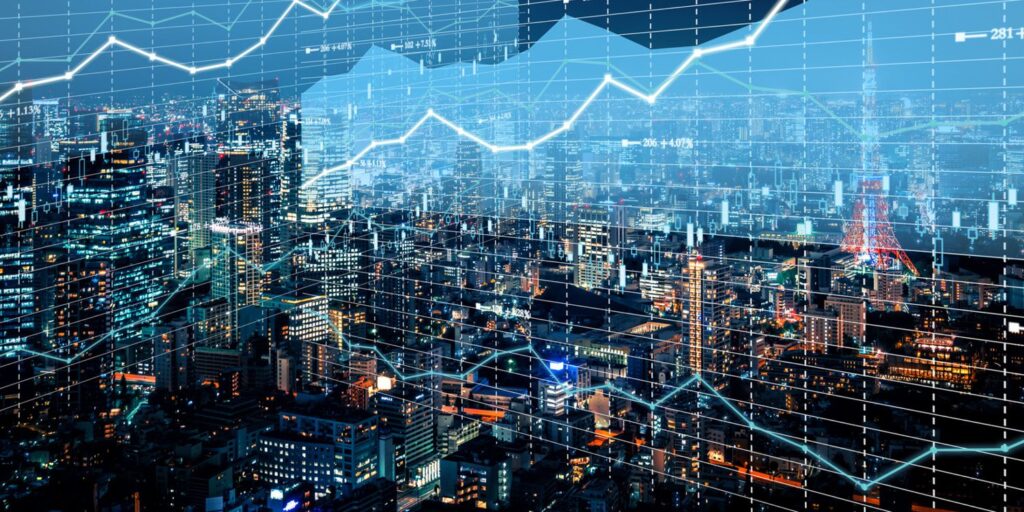How Does The Economy Work?

An economy is a complex system of production, distribution, and consumption of goods and services. It is driven by the interactions of individuals, businesses, and governments. The goal of an economy is to produce as many goods and services as possible to satisfy the needs and wants of its citizens.
Production
The production of goods and services is the first step in the economic cycle. Businesses use resources such as labor, land, and capital to create goods and services. These resources are scarce, meaning that there is not an unlimited supply of them. Businesses must therefore make decisions about how to allocate these resources in order to produce the most goods and services possible.
Distribution
Once goods and services have been produced, they must be distributed to consumers. This is done through a network of markets and businesses. Markets are places where buyers and sellers meet to exchange goods and services. Businesses play a key role in distribution by transporting goods from producers to consumers.
Consumption
Consumption is the final step in the economic cycle. Consumers use goods and services to satisfy their needs and wants. Consumption is what drives the economy forward. When consumers have more money to spend, they buy more goods and services. This increases demand for goods and services, which leads to increased production.
Government Intervention
Governments play a role in the economy by providing a framework for businesses to operate, by regulating the economy, and by providing social safety nets. Governments also play a role in the distribution of goods and services by providing public goods such as education and healthcare.
The Role of Money
Money is a medium of exchange that is used to facilitate the buying and selling of goods and services. It is also a unit of account that is used to measure the value of goods and services. Money makes it easier for people to trade with each other and to store wealth.
Economic Indicators
Economic indicators are measures of the health of an economy. They can be used to track the performance of the economy over time and to identify potential problems. Some common economic indicators include the unemployment rate, the inflation rate, and the gross domestic product (GDP).
Economic Growth
Economic growth is the increase in the production of goods and services in an economy over time. It is typically measured as a percentage increase in the GDP. Economic growth is important because it leads to higher living standards for people.
Economic Cycles
Economies go through periods of expansion and contraction. Expansion is a period of economic growth, while contraction is a period of economic decline. Economic cycles are caused by a variety of factors, including changes in consumer spending, business investment, and government policy.
The economy is a complex system that is constantly evolving. It is important to understand how the economy works in order to make informed decisions about personal finance, business, and government policy.
Factors that influence the economy
The economy is a complex system that is influenced by a variety of factors. These factors can be broadly categorized into internal and external factors.
Internal factors are those that originate within the country itself. They include:
- Fiscal policy: This is the government’s use of taxation and spending to influence the economy. For example, the government can increase taxes to reduce consumer spending and inflation, or it can decrease taxes to stimulate the economy.
- Monetary policy: This is the central bank’s use of interest rates to influence the economy. For example, the central bank can increase interest rates to slow down the economy and reduce inflation, or it can decrease interest rates to stimulate the economy.
- Government spending: This is the government’s expenditure on goods and services. Government spending can have a significant impact on the economy, as it can create jobs and boost demand for goods and services.
- Taxation: This is the government’s collection of taxes from individuals and businesses. Taxes can have a significant impact on the economy, as they can reduce consumer spending and investment.
- Labor force: This is the number of people who are available to work. The size and skill level of the labor force can have a significant impact on the economy, as it affects the supply of labor and the overall productivity of the economy.
- Technology: This includes the development and adoption of new technologies. Technology can have a significant impact on the economy, as it can increase productivity and create new industries.
- Natural resources: This includes the availability of natural resources such as oil, gas, and minerals. Natural resources can have a significant impact on the economy, as they can provide energy and raw materials for industries.
External factors are those that originate outside of the country. They include:
- Global economic conditions: The health of the global economy can have a significant impact on a country’s economy. For example, a recession in one country can lead to a decrease in demand for exports from other countries.
- Interest rates in other countries: Interest rates in other countries can affect the flow of capital into and out of a country. For example, if interest rates are higher in other countries, investors may be less likely to invest in a country with lower interest rates.
- Exchange rates: Exchange rates can affect the price of imports and exports. For example, if a country’s currency depreciates, its exports will become cheaper for foreigners to buy, and its imports will become more expensive.
- Political stability: Political stability can affect investor confidence. For example, if a country is politically unstable, investors may be less likely to invest in the country.
- Natural disasters: Natural disasters such as earthquakes, hurricanes, and floods can damage infrastructure and disrupt production, which can have a significant impact on the economy.
These are just some of the many factors that influence the economy. The relative importance of these factors will vary depending on the specific country and the specific time period.
Components of the economy
The economy is a complex system made up of many different components. These components can be broadly categorized into three main groups:
- Resources: These are the basic inputs that are used to produce goods and services. They include natural resources, such as land, water, and minerals, as well as human resources, such as labor and knowledge.
- Production: This is the process of transforming resources into goods and services. It includes all of the activities that are involved in creating value, from the extraction of raw materials to the delivery of finished products to consumers.
- Consumption: This is the use of goods and services to satisfy human wants and needs. It includes both personal consumption, such as spending on food, clothing, and housing, and government consumption, such as spending on infrastructure and defense.
These three components are all interconnected. Resources are used in production to create goods and services, which are then consumed by households and businesses. The circular flow of income model illustrates these relationships.
In addition to these three main components, there are also a number of other important factors that affect the economy, such as:
- Technology: Technology plays a key role in economic growth by increasing productivity. New technologies can lead to the development of new products and services, as well as more efficient ways of producing existing goods and services.
- Institutions: Institutions are the rules and norms that govern economic behavior. They include things like property rights, contracts, and laws. Institutions can have a significant impact on economic growth and development.
- International trade: International trade is the exchange of goods and services between countries. It can lead to greater economic efficiency and growth by allowing countries to specialize in the production of goods and services that they are relatively good at producing.
The economy is a complex and ever-changing system. It is important to understand the different components of the economy and the factors that affect it in order to make informed decisions about economic policy.
In Conclusion:
international trade plays a crucial role in shaping the global economy. By facilitating the exchange of goods and services across borders, it not only promotes specialization and efficiency but also fosters economic growth and development. However, it is essential to strike a balance and consider the potential drawbacks and challenges associated with trade, such as the risk of trade imbalances, protectionism, and the impact on domestic industries and workers. Therefore, policymakers must carefully analyze and implement measures to ensure that international trade benefits all parties involved and contributes to a sustainable and inclusive economic system.







